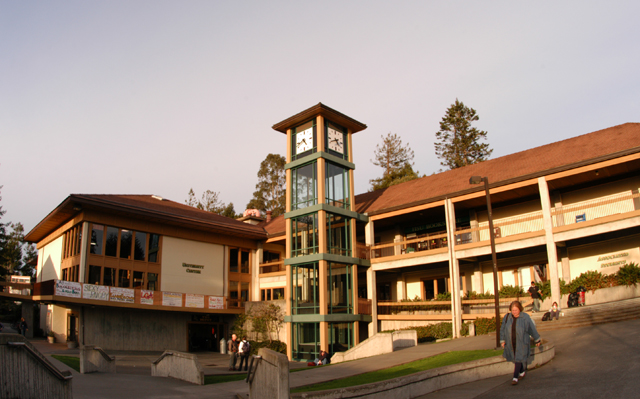
Development of the new, four-year online graduate program has been funded through a collaborative effort between the Superior Region Workforce, Education and Training Partnership of California Mental Health Directors, the California Social Work Education Center and the College of Professional Studies at HSU.
“The online graduate program will be very similar to our on-campus program. Courses are spread out over four years so people can continue to work while they are completing their educational program,” says Jamie Jensen, Director of the Undergraduate Social Work program and Interim Distributed Learning Coordinator for the Department of Social Work. “If you’re on campus, you are taking an average of four academic classes per semester. The main difference in the scheduling of courses with the online program is you’re taking two classes plus a seminar each semester.”
The program is also planning to offer an advanced standing option for students who already hold BSW degrees institutions accredited by the Council on Social Work Education. Those who qualify for advanced standing will apply to the program as third-year students. The advanced standing program is scheduled to begin in 2014.
Although students can complete their coursework without ever stepping foot inside a classroom, program participants will likely be required to visit campus for additional educational experiences.
“We anticipate that once a year, students will come to campus for a weekend of intensive training. There will be skill building, guest speakers and interviewing practice,” Jensen says. “On-campus intensives are going to be really incredible, students will get to meet the faculty, practice their skills and build relationships with one another.”
“The vision of the MSW program has always been to have a program that can meet the needs of the rural and Indigenous Communities of Northern California” says Christian Itin, Director of the Graduate Program in Social Work. “The opportunity to partner with the Superior Region Workforce, Education and Training Partnership of Mental Health Directors has really allowed us to make this vision into a reality in a timely way, despite the challenges facing higher education.”
The undergraduate BSW Pathway Program, which looked at distributed education for currently employed tribal and county workers to achieve their BSW, provided a beginning framework for the MSW program. Once the curriculum for the distributed education bachelor’s degree was designed, the next step was naturally an online master’s program, says Jensen. “Students from the Pathway Program are ready to start attending HSU and we want to make sure they have the option to continue their education if they want to do that,” she says. “Distributed Learning is the upcoming model of education and we are fortunate to have the resources to offer this great program to the community. Jensen anticipates that the average student enrolled in the program will already be working, raising a family or both. For these students, some returning to school after decades, taking online classes can seem daunting.
“I think the thing that most people are afraid of is that they won’t have that support they need,” Jensen says. “We’re anticipating that most people who take this class, who join this program, will not be tech savvy, but we’re prepared for that.”
“The program is still being developed, however, we anticipate that most courses will be offered via an asynchronous model,” says Jensen, meaning that students can work at their own pace at whatever time they’d like, including weekends and evenings.
On occasion, students will be asked to sign in at a certain time and date to participate in a synchronous class meeting to allow for group discussions and participation. “A hallmark of distributed learning is the use of small group learning, so we anticipate that students will often be working within a learning community, thereby enjoying some of the benefits of face-to face education,” Itin says.
Whether they’re studying on their own or in a virtual class session, students will get the support they need. “Students will get a workshop on the technology and online learning skills. Every synchronous classroom they’re in will have a person there who can help them. And for every asynchronous class, there’s tech support,” Jensen says. And students will receive more than just tech support. “We anticipate hiring regionally positioned mentors who will be available to provide tutoring, support and guidance to students who are located far from campus,” she says.